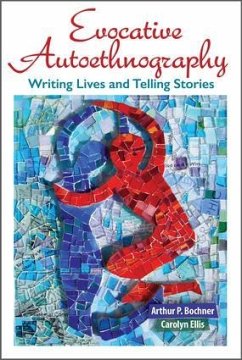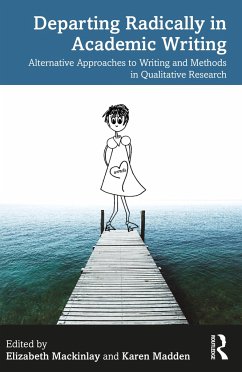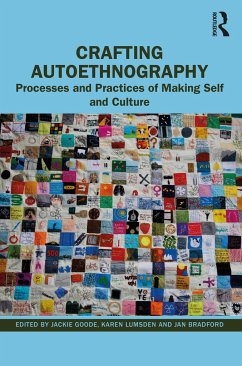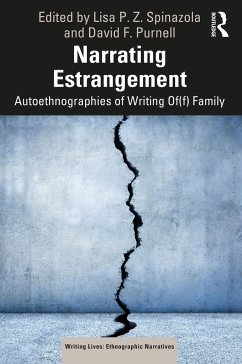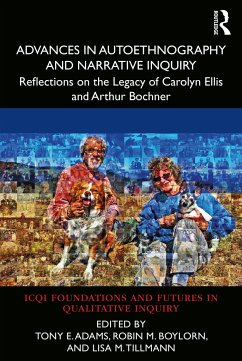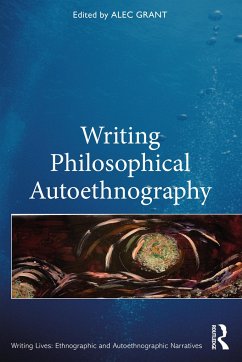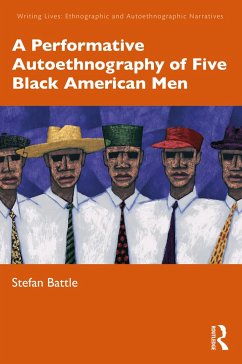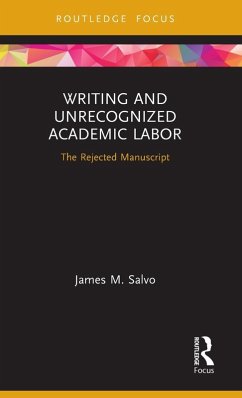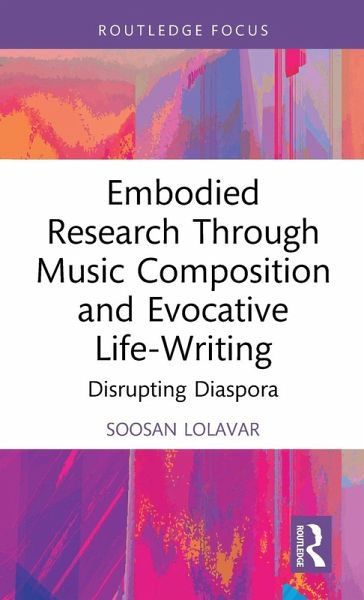
Embodied Research Through Music Composition and Evocative Life-Writing
Disrupting Diaspora
Versandkostenfrei!
Versandfertig in 6-10 Tagen
54,99 €
inkl. MwSt.
Weitere Ausgaben:

PAYBACK Punkte
27 °P sammeln!
Embodied Research Through Music Composition and Evocative Life-Writing: Disrupting Diaspora examines how attendance to the lived experience of diaspora can impact our scholarly understanding of the term.Through the entanglements between her life and practice as a music composer, British Iranian author Soosan Lolavar weaves together a uniquely embodied approach to academic discussions, enriched by both her personal narrative and music. This book powerfully argues for the unique contribution of ways of knowing that are palpably understood through the body. Lolavar scrutinises the ways that the m...
Embodied Research Through Music Composition and Evocative Life-Writing: Disrupting Diaspora examines how attendance to the lived experience of diaspora can impact our scholarly understanding of the term.
Through the entanglements between her life and practice as a music composer, British Iranian author Soosan Lolavar weaves together a uniquely embodied approach to academic discussions, enriched by both her personal narrative and music. This book powerfully argues for the unique contribution of ways of knowing that are palpably understood through the body. Lolavar scrutinises the ways that the metaphor of diaspora has left indelible marks on her life and work, exploring these through the narrative presented in this book and publically available recordings of her music. This process allows her to construct new theoretical conceptions of diaspora which bring nuance and detail to a concept used widely across the humanities and social sciences. Disrupting Diaspora presents a map for transdisciplinary work which triangulates artistic practice, theory and evocative life-writing in lively and reflexive ways. In so doing, it contributes to a growing field of embodied scholarly work.
This book is primarily written for an academic audience with interests in embodied research methods, diaspora studies, practice-as-research in general and creative research in music composition in particular. It will be suitable for students in the disciplines of music studies, music composition, sociology, communications, creative writing, anthropology and human geography.
Through the entanglements between her life and practice as a music composer, British Iranian author Soosan Lolavar weaves together a uniquely embodied approach to academic discussions, enriched by both her personal narrative and music. This book powerfully argues for the unique contribution of ways of knowing that are palpably understood through the body. Lolavar scrutinises the ways that the metaphor of diaspora has left indelible marks on her life and work, exploring these through the narrative presented in this book and publically available recordings of her music. This process allows her to construct new theoretical conceptions of diaspora which bring nuance and detail to a concept used widely across the humanities and social sciences. Disrupting Diaspora presents a map for transdisciplinary work which triangulates artistic practice, theory and evocative life-writing in lively and reflexive ways. In so doing, it contributes to a growing field of embodied scholarly work.
This book is primarily written for an academic audience with interests in embodied research methods, diaspora studies, practice-as-research in general and creative research in music composition in particular. It will be suitable for students in the disciplines of music studies, music composition, sociology, communications, creative writing, anthropology and human geography.




